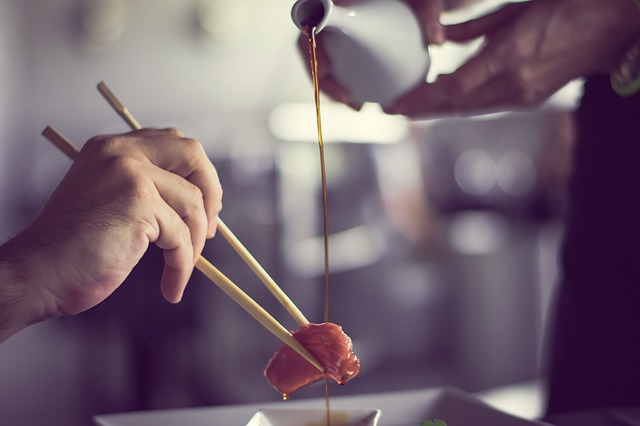Japanese food giant Ajinomoto announced that it has strengthened its position in the European consumer foods market with the acquisition of Labeyrie Traiteur Surgelés (LTS) – a French frozen food business. And although the company declined to disclose the purchase amount, the deal values the company at 21 million Euro (US$24.5 million).
LTS is a frozen food subsidiary of Labeyrie Fine Foods (LFF), a maker and marketer of chilled foods including foie gras and smoked salmon, with net sales last year of 50 million Euro (US$58 million). LTS produces and sells Labeyrie branded foods, the number one brand in France in the desserts and aperitifs category, Blini branded products, pies, risotto, and others.
For Ajinomoto, the deal will enhance and expand its frozen food holdings by combining LTS’ production and market penetration with its specialization in product development and production technology capabilities. The deal also will place Ajinomoto in a strong position from which to further strengthen its food business in Europe and accelerate growth for the group.
Targeting Europe for growth as part of its three-year plan to become the leading Asian company in the frozen food sector is a strategically sound move on Ajinomoto’s part. In its medium-term management plan 2017-2019, Ajinomoto has laid the groundwork to ensure growth for its food product business through strong region portfolios, and through the introduction of specialty products in both Europe and North America.
Last year, Europe’s frozen food market was valued at 41 billion Euro (US$48 billion), according to Euromonitor. Additionally, the market in France for Japanese cuisine saw 15 percent growth in 2016 year on year, reaching a value of 47 million Euro due to an increase in Japanese and sushi restaurants in the country, according to Food Ingredients First. Furthermore, within the coming years, Japan will be hosting the Rugby World Cup in 2019 and the Tokyo 2020 Olympic and Paralympic games, giving greater global exposure to Japanese foods.
Within recent years Ajinomoto also has expanded its reach in North America with the acquisition of Texas-based ethnic frozen food producer Windsor Quality Holdings in September 2014.
Windsor has an extensive network of 80,000 stores selling its products, and an even larger network of 120,000 restaurants that are food service customers of the company.
“By combining Windsor’s marketing power, knowledge of U.S. consumers, distribution and sales capabilities and production footprints throughout the U.S. with AJINA’ s strengths in healthy, high-quality and delicious frozen food products which are originating from Japan and supported by advanced technologies, Ajinomoto will accelerate its growth to achieve its fiscal 2020 sales target of JPY 100 billion (US$90 million) for its frozen food business in North America and secure its position as the clear No. 1 manufacturer in the Asian/Ethnic frozen food market,” said Ajinomoto at the time.
More recently, Ajinomoto made a strategic move to capitalize upon the growing popularity of plant protein. In March of this year, the company announced it had agreed to invest $15 million in Hinoman, an Israeli plant protein company focused on the Mankai plant.
Under the terms of the agreement, Ajinomoto also will gain the exclusive rights to sell Hinoman’s Mankai plant protein products on the Japanese market.
Launched by Hinoman at the Institute for Food Technologists in Chicago in 2015, Mankai is a tiny aquatic plant of the duckweed family native of Southeast Asia. And at 0.5 millimeters (less than 1/5 of an inch), it is the smallest vegetable in the world. The plant is naturally high in vitamins A, E, and B, minerals, and fatty acids, and due to its small size, can be easily incorporated into a range of food or vegetables.
Through this deal, Ajinomoto plans to launch a new business that will focus on the sale of Mankai as a whole food, and on the development and production of processed foods that incorporate Mankai as an ingredient.
Consumer interest in protein and amino acid intake is spreading in Japan, and with it, the demand for processed foods that can answer the societal challenges of malnourishment and nutritional deficiencies is increasing too.
Between 2010 and 2016, the market for protein-source foods in Japan saw a 12 percent increase, according to a survey conducted by Ajinomoto, which also found that the market will continue to grow at a rate of between two and three percent.
As Ajinomoto strives to use specialty ingredients and proprietary methods to respond to the challenges of consumer nutrition and sustainability within the food supply chain, it plans to launch new Mankai products beginning in fiscal year 2018 and beyond.
-Lynda Kiernan
Lynda Kiernan is Editor with GAI Media and daily contributor to GAI News. If you would like to submit a contribution for consideration, please contact Ms. Kiernan at lkiernan@globalaginvesting.com

